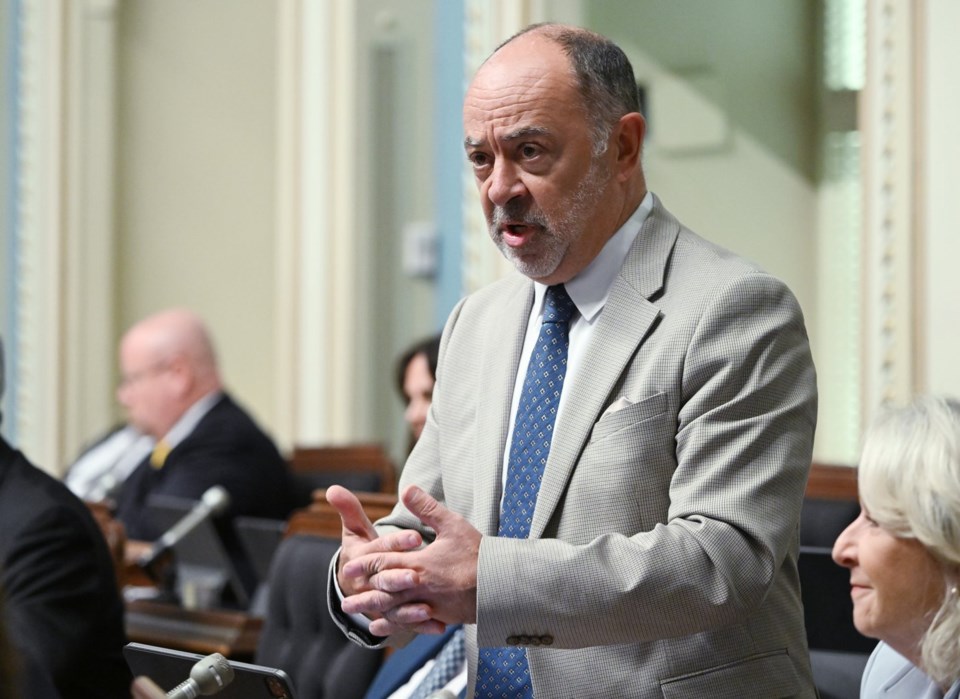MONTREAL — The Quebec government says it is ready to make changes to a controversial directive that has raised concerns the province is restricting access to health care in English.
In an open letter published Friday, three provincial ministers insist the government is not limiting the availability of health services in languages other than French.
"The government of Quebec imposes absolutely no linguistic conditions in health-care settings before providing health care in English to anyone who requests it," reads the letter, signed by Jean-François Roberge, minister of the French language; Eric Girard, minister responsible for relations with English-speaking Quebecers; and Health Minister Christian Dubé.
"We are open to clarifying the directive to make it clear that there will never be language requirements in Quebec to treat a patient."
The ministers said they will meet with representatives of the English-speaking community to hear their concerns and reassure them.
The open letter is the government's latest attempt to quell concern about the 23-page directive, published last month, which sets out specific examples of situations where English can be used in health-care settings.
This week, federal Liberal MPs have begun to raise concerns about the document. In a statement posted to the X social media platform Wednesday, Montreal-area MP Anna Gainey said the "confusion and uncertainty created by the directive is likely to have adverse consequences that cannot be ignored." She said she has spoken with Health Minister Mark Holland about the issue.
Speaking Friday in Halifax at a meeting of the Ministers' Council on the Canadian Francophonie, Roberge claimed the directive "concerns the administration of the health care system" and not front-line health care.
"I would like to state in a very, very clear manner, without any ambiguity, that the Government of Quebec has not taken any action, and will not take any action, that calls into question the right of English speakers in Quebec to be welcomed, to be treated in the language of their choice, that is to say in English," he said.
Federal Official Languages Minister Randy Boissonnault, also in Halifax, said that after meeting with Roberge he was reassured that the issue will be resolved.
Speaking to reporters Friday in Quebec City, Holland said it is essential that people can access health care in their mother tongue. "It's very clear to me that the intention of the Quebec government is to ensure that services are available in both languages," he said.
In their letter, the Quebec ministers said the directive "does not limit the circumstances under which users have the right to receive health and social services in English," and that "any suggestion to the contrary is false."
However, the directive suggests a language other than French should only be used in exceptional situations, when “health, public safety or the principles of natural justice require it,” including during emergencies.
It instructs health-care workers to always communicate in French first, and lists a number of highly specific examples where English can be used. In one, a 10-year-old boy requires emergency medical care. In that case, health-care professionals are allowed to ask for his anglophone father’s consent in English.
The directive also stipulates that members of Quebec’s historic anglophone community must provide a certificate proving their eligibility to attend English school in the province if they want to receive all medical services exclusively in English. Roberge has suggested this refers mainly to administrative communication, though that is not stated in the document.
"Organizations in the health and social services network do not request documentation or proof from users for the provision of care in a particular language," the ministers wrote in their letter.
According to the directive, immigrants to the province are only eligible to receive health care in a language other than French for the first six months after their arrival.
André Pratte, former senator and chair of the Quebec Liberal party's policy committee, is calling on the government to withdraw the directive, which comes in response to Bill 96, the contentious 2022 law designed to protect the French language in Quebec.
"The directive is a clear example of the finicky and dehumanizing approach that the wording of Bill 96 led us to fear," he wrote in a lengthy post on the social media platform X.
This report by The Canadian Press was first published Aug. 9, 2024.
— With files from Keith Doucette in Halifax and Thomas Laberge in Quebec City
Maura Forrest, The Canadian Press



